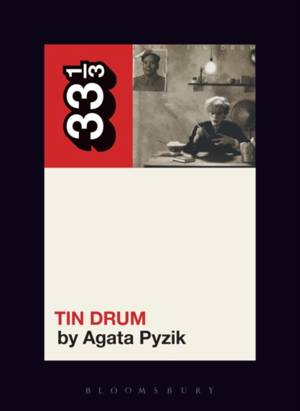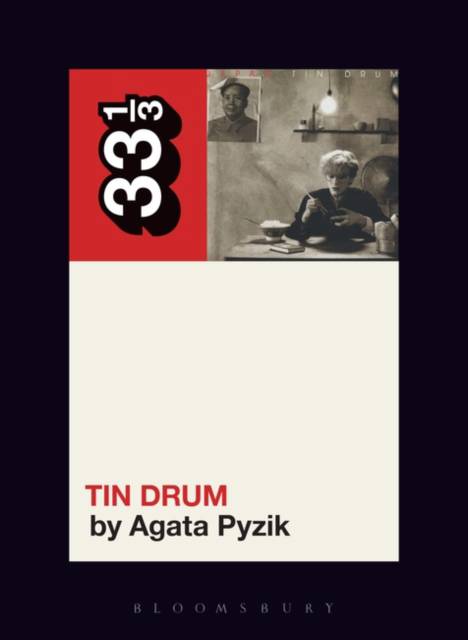
- Afhalen na 1 uur in een winkel met voorraad
- Gratis thuislevering in België vanaf € 30
- Ruim aanbod met 7 miljoen producten
- Afhalen na 1 uur in een winkel met voorraad
- Gratis thuislevering in België vanaf € 30
- Ruim aanbod met 7 miljoen producten
Zoeken
Omschrijving
Tin Drum seeks to provide an outsider look at one of the most mysterious post-punk albums, the 1981 Orientalist and escapist manifesto by the English synth-pop/new wave English band Japan. As an act of cultural appropriation and a meditation on the perils of Western civilisation, seeking solace in a virtual trip to the 'Orient of the self' and Maoist ideology, Tin Drum invites external analysis to be culturally appropriated itself. Agata Pyzik tells how the fruitful encounter between the neurotic Western youngsters and dream of the radically other East produced one of the most dissonant and compelling records of the era, too strange to be appreciated at the time, a big hit at the time but too peculiar to be fully understood. Why, at the break of the 1980s and the final decade of the cold war, do these pale aesthetes dream of Mao's China? At once incredibly English and exotic, futurist and backward-looking, Japan and Tin Drum were a unique exercise in Rimbaudian 'becoming somebody else', fascinated in Chinese communism, anticipating the surge of the interest in Chinese Tiger just as it was shaking off Mao's legacy to become a modern, capitalist economy. Yet the yearning to become 'different' expressed in it, both in terms of class and nationality, makes the album's claim unexpectedly universal.
Specificaties
Betrokkenen
- Auteur(s):
- Uitgeverij:
Inhoud
- Aantal bladzijden:
- 144
- Taal:
- Engels
- Reeks:
Eigenschappen
- Productcode (EAN):
- 9781501322228
- Verschijningsdatum:
- 9/04/2026
- Uitvoering:
- Paperback
- Formaat:
- Trade paperback (VS)
- Afmetingen:
- 121 mm x 165 mm
- Gewicht:
- 453 g

Alleen bij Standaard Boekhandel
+ 27 punten op je klantenkaart van Standaard Boekhandel
Beoordelingen
We publiceren alleen reviews die voldoen aan de voorwaarden voor reviews. Bekijk onze voorwaarden voor reviews.











